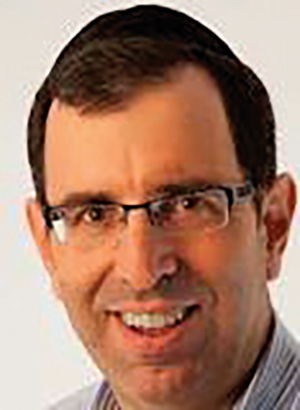
Reviewing: “Halakhah: The Rabbinic Idea of Law” by Chaim N. Saiman. Princeton University Press. 2018. Harcover. ISBN-13: 978-0691152110.
The subtitle of the classic medieval work “The Kuzari” is “In Defense of the Despised Faith.” In “Halakhah: The Rabbinic Idea of Law” (Princeton University Press 9780691152110), a subtitle of “In Defense of Halacha” just might be in order here. The book provides a conceptual introduction to halacha, with an emphasis on how to think about halacha.
In this fascinating work, Chaim Saiman (professor of law at Villanova University) has written not just an overview of halacha, but a defense of it. Halacha has long been under siege from its adversaries. In his opening salvo, Saiman deals with none other than Jesus of Nazareth. While Jesus was certainly was not the first to attack halacha as being far too obsessive to the letter of the law, while being deficient to the greater spirituality, he certainly left a lasting impression. Saiman notes that those who blindly attack halacha often do so as focusing on it as Jewish law. To which Saiman is quick to note, and this is a major point in the book, that halacha is not Jewish law.
It’s far too easy to merely translate halacha as Jewish law; Saiman writes that it is profoundly more than that. Halacha is concurrently a system of governing rules and practices, a forum for legal analysis, a platform for religious expression and an object of devotional study.
The challenge with halacha is that it presents itself as a regulatory system that governs every aspect of Jewish life. Of course it is that, but it’s important to realize that it’s much more than that. And the significant problem in translating it as law is that it both overestimates and underestimates the role of halacha and how it functions.
And that is precisely the point the book makes. That those who see halacha as law are missing the forest for the trees. Halacha, and ergo the Talmud, is not simply a legal code. It is the launching pad for all of Jewish thought. And on that launching pad is the mechanism to deal with every issue, every topic and every Jewish scenario under the sun. The beauty of halacha is that it is the vehicle the Talmud uses as its channel for much broader discussions.
Simply saying that Halacha is not Jewish law may seem at first disingenuous. Yet Saiman is uncovering a nuanced approach that far too many outsiders don’t appreciate.
Of course, halacha is law. But he notes that halacha is entirely different from any other legal systems. Aside from lawyers and government officials, the average US citizen does not peruse the US legal code. It goes so far as that few Americans can elucidate the specifics of the Constitution. And they certainly don’t really study it.
In the book, Saiman picks out numerous Talmudic and Mishnaic passages, and shows what it means to view halacha through the lens of Torah study, and not simply as dry Jewish law. That difference is not trivial, and is exactly what makes halacha so unique.
The book eloquently shows how, far from being the cold blade of Jewish law, halacha is the Swiss Army knife of Judaism, as halacha fills so many roles, from legal to devotional, spiritual, cultural and much more. Each of halacha’s paradigmatic forms represents a pole that exerts a magnetic force on the field as a whole.
In truth, Saiman’s book is an expansion of the Talmudic observation that after the Temple was destroyed, the only place where God can be found is within the halacha. When the Temple stood in Jerusalem, one would visit there to be in God’s presence. After its destruction, the best way to encounter God is through halacha.
For those who think that halacha is nothing but cold, dry law, “Halakhah: The Rabbinic Idea of Law” turns that coldness into a warm godly embrace.
By Ben Rothke
Ben Rothke lives in New Jersey and works in the information security field. He reviews books on religion, technology and science.










